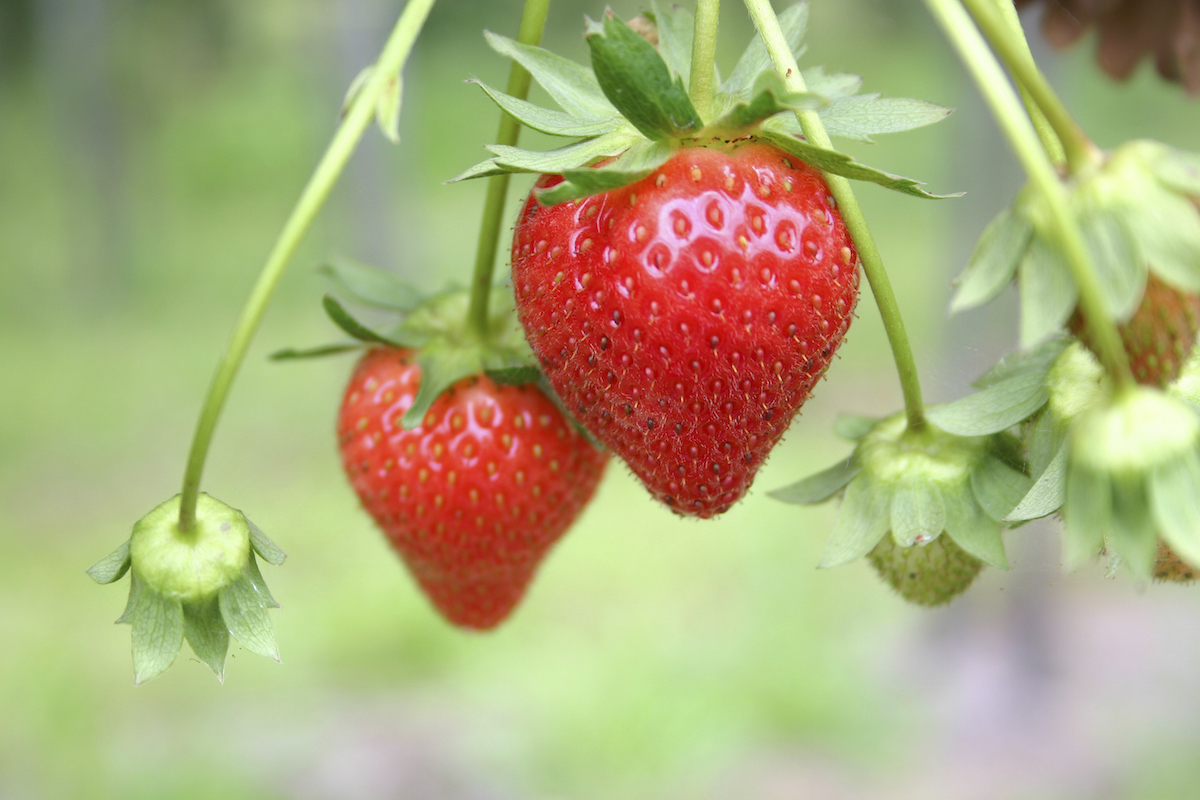Ohio: Can cigarette smoke and the
saliva of heavy smokers influence the metabolism of cancer-inhibiting
chemicals found in strawberries and expression of genes associated with
oral cancer risk? A new pilot study conducted at The Ohio State University Comprehensive Cancer Center – Arthur G. James Cancer Hospital and Richard J. Solove Research Institute
(OSUCCC – James) hypothesized that they can, and initial data reveals
some intriguing differences in the oral microenvironment of smokers
versus non-smokers.
Researchers will report their findings at the American Association for Cancer Research (AACR) 2017 Annual Meeting in Washington, D.C, Tuesday, April 4.
Study Design and Results
For this study, a multidisciplinary team made up of experts in functional foods, oncology, and public health conducted an early phase clinical trial to establish the differences in salivary enzyme activities on the phytochemical components of strawberries between smokers and non-smokers. Researchers also analyzed the expression of a select group of genes associated smoking and increased risk of oral cancer.
For this study, a multidisciplinary team made up of experts in functional foods, oncology, and public health conducted an early phase clinical trial to establish the differences in salivary enzyme activities on the phytochemical components of strawberries between smokers and non-smokers. Researchers also analyzed the expression of a select group of genes associated smoking and increased risk of oral cancer.
Strawberries were administered
using a novel confection designed to enhance delivery in the oral cavity
to phytochemicals, including anthocyanins, the family of purple and red
pigments found in fruits and vegetables.
Previous laboratory studies
suggest that dietary administration of whole strawberries has
substantial potential as a strategy for oral and esophageal cancer
prevention.
“When people eat strawberries,
they chew and swallow the fruit quickly. We wanted to develop a method
of increasing exposure in the mouth to the beneficial phytochemicals
that have linked with oral cancer prevention, and look for potential
differences in that way the salivary enzymes in smokers versus
non-smokers metabolize them.” explains study first author Jennifer
Ahn-Jarvis, PhD, a postdoctoral fellow in The Ohio State Colleges of Dentistry.
To do this, Ahn-Jarvis and team
designed a pilot clinical trial to analyzed the effects of an Ohio
State-developed strawberry confection – a small candy with the
nutritional equivalent of 2 ½ cups of whole strawberries – in a group of
heavy smokers compared with an equal group of never-smokers.
Study participants were asked to
consume the strawberry confection or a placebo four times a day for one
week and follow a diet absent of other red and purple fruits and
vegetables.
The team then collected saliva
and tissue samples from inside the mouth to measure levels and
activities of salivary enzymes that metabolize strawberry phytochemicals
and the expression of a select panel of 44 genes associated with
cigarette smoke and oral cancer risk, respectively.
Researchers observed significant
differences between smokers and non-smokers in salivary enzyme activity
and strawberry metabolites in the mouth following administration of the
strawberry confection. They also validated seven genes (ALOX12B, CD207,
HTR3A, KRT10, LOR, PNLIPRP3, TRNP1) independently associated with
smokers versus non-smokers. The combination effect of smoking/strawberry
exposure on oral cancer risk and its relation to gene expression
remains unclear, and is currently under investigation.
“This initial data confirmed that
something is very different about the oral environment of smokers which
may ultimate influence not only cancer risk but also the potential
effectiveness of food-based cancer prevention strategies,” adds
Ahn-Jarvis. “Successful development and use of our novel
confection delivery system paves the way for its use in a larger study,
which will allow us to more precisely evaluate the effects of smoking
and strawberries on molecular endpoints related to oral cancer
development.”
Additional analysis of study data
is underway to determine if there is a correlation between oral
exposure time to anthocyanins and reduced oral cancer risk among
smokers. Studies are also ongoing to identify strawberry modulated genes
in the oral cavity of smokers which may influence the development of
oral cancer.
This study was supported in part
by the OSUCCC and Pelotonia. Study collaborators include: Thomas J.
Knobloch, PhD, Steve Oghumu, PhD, Ken M. Riedl, PhD, Guy Brock, PhD,
Steven K. Clinton, MD, PhD, Yael Vodovotz, PhD, Steven J. Schwartz, PhD,
Christopher M. Weghorst, PhD.
